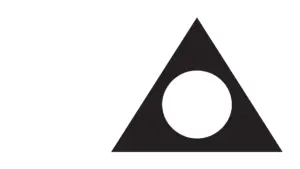The terms addiction vs dependence are often intertwined as if they mean the same thing. You may hear them in everyday conversations, at the doctor’s office, or in the news. However, using them interchangeably can confuse and harm people, especially when it comes to getting treatment and support.
We’ll look at why understanding the difference is important, break down the medical and behavioral aspects of each, and explain how they affect the brain and body.

Why the Distinction Between Addiction and Dependence Matters
Knowing the difference between addiction and dependence is very important, especially when it comes to getting the right treatment and support.
When someone is wrongly labeled as having an addiction (when they’re just physically dependent on a medication), it can cause serious problems. They might be taken off a medicine they need. They could be judged unfairly by doctors, family, or even the law. In some cases, doctors also get blamed or watched more closely for giving helpful medicines.
One reason this confusion happens is because of how medical conditions are recorded. Doctors use codes to label illnesses, but the codes used for addiction and dependence are not always clear. The system many doctors use (called ICD-9 or ICD-10) hasn’t been updated in a long time. These codes mix up addiction (which is a behavior issue) with dependence (which is a body’s natural reaction to long-term medicine use).
Research shows that this confusion often leads to wrong diagnoses. People with a normal dependence on medication (for example, someone using pain medicine after surgery) may be wrongly labeled as addicts. This can cause them stress, stigma, and even legal trouble.
Thankfully, a different system called the Diagnostic and Statistical Manual of Mental Disorders, Fifth Edition (DSM-5) explains addiction more accurately. Experts believe the ICD should be updated to match it. This would help doctors make better decisions and protect patients from being misunderstood.
What Is Addiction?
- Medically, addiction is a brain disease that affects how a person thinks, feels, and acts. It causes strong cravings, a loss of control, and ongoing use despite problems in their health, job, or relationships.
- Behaviorally, addiction shows up as habits that are hard to break. The person might lie, hide their use, or keep using even if it’s hurting their life.
How Addiction Affects the Brain and Body
Addiction changes how the brain works, especially the parts that deal with pleasure, decision-making, and self-control. The more someone uses a drug, the more their brain depends on it to feel normal. This leads to tolerance (needing more of the drug to feel the same effect) and withdrawal symptoms (feeling sick or anxious when not using).
It also harms the body. Depending on the substance, addiction can cause:
- Liver damage
- Lung and heart problems
- Trouble sleeping or eating
- Mood changes like anxiety or depression
Is Addiction the Same as Alcohol Use Disorder (AUD)?
Alcohol Use Disorder (AUD) is a type of addiction. It’s when someone loses control over their drinking. So yes, AUD falls under the bigger category of addiction. Like other substance use disorders, it can be treated but may require long-term care and support.
Common Addictive Substances
Many things can cause addiction, not just illegal drugs. Here are some of the most common substances:
- Marijuana (cannabis)
- Opioids, like fentanyl, heroin, and some prescription painkillers
- Stimulants, like Ritalin or Concerta (used for ADHD)
- CNS depressants, like Xanax, Ambien, and phenobarbital (used for anxiety or sleep)
- Cough medicines, especially those with dextromethorphan (DXM)
Even nicotine (in cigarettes and vapes) and alcohol are addictive.
Addiction Can Be Treated
Over 47.7 million people in the U.S. aged 12 and older have a substance use disorder. Most cases are related to marijuana and prescription painkillers.1 The good news is that addiction is highly treatable.
But it’s not always easy. Many people need to try treatment more than once. The chance of relapse (going back to use) is between 40–60%, which is similar to other long-term illnesses like diabetes or asthma.2
What Is Dependence?
- Medically, dependence means the body has adapted to a substance. Over time, the person needs more of it to feel the same effect. This is called tolerance.
- Behaviorally, a person with dependence might not crave the substance like someone with an addiction, but they feel like they have to keep using it to avoid feeling bad.
How Dependence Affects the Brain and Body
Dependence mainly affects the body’s physical systems. When you use a substance often, your brain adjusts to it. Then, if you stop suddenly, your brain and body have a hard time coping. This can cause symptoms like:
- Sweating
- Shaking
- Nausea or vomiting
- Headaches
- Anxiety or mood swings
- Trouble sleeping
Alcohol dependence, for example, can also harm the liver, heart, and brain. It can cause memory problems, mood changes, and increase the risk of several types of cancer.3
Is Dependence the Same as Alcoholism?
Alcohol dependence is often called alcoholism. A person with alcohol dependence:
- Can’t control how much they drink
- Needs more alcohol to feel the same effect
- Has withdrawal symptoms if they try to stop
- May struggle with relationships, work, and daily life
This condition hurts both physical and mental health. Over time, it can lead to serious health problems and affect a person’s ability to live a normal life.
Choosing the Right Treatment Based on Diagnosis
Getting the right treatment starts with getting the right diagnosis. That means knowing whether someone has addiction, dependence, or both. These two conditions are not the same, so they need different types of care.
Treatment for Dependence
If a person is physically dependent on a substance, the goal is to manage withdrawal safely. Doctors might:
- Slowly reduce the dose (called tapering)
- Use medications to ease symptoms
- Monitor the person closely in a hospital or clinic
This kind of treatment focuses on helping the body recover and adjust without the substance.
Treatment for Addiction
Addiction treatment focuses more on changing behavior and helping the brain heal. This might include:
- Therapy, such as counseling or group support
- Medication, like methadone or buprenorphine, for opioid addiction
- Support programs, like 12-step meetings or rehab
- Relapse prevention helps people stay on track
Addiction treatment often takes longer and includes both mental and emotional support.
Finding What Works Best
Every person is different. What works for one person may not work for another. Some people need medical detox first, then long-term therapy. Others might need medication and support groups.
The most important thing is to get a clear diagnosis and choose a plan that fits the person’s needs, whether that’s short-term help for dependence or long-term addiction care.
At OceanRock Health and South Coast Counseling, our teams understand the difference between addiction and dependence. We use personalized treatment plans based on your specific diagnosis, so you get the care that fits your needs.
Contact us today and find your way back to recovery and health.

Sources:
- National Center for Drug Abuse Statistics. (2020). NCDAS: Substance Abuse and Addiction Statistics [2020]. National Center for Drug Abuse Statistics. https://drugabusestatistics.org/
- National Institute on Drug Abuse. (2020, July). Treatment and recovery. National Institute on Drug Abuse. https://nida.nih.gov/publications/drugs-brains-behavior-science-addiction/treatment-recovery
- National Institute on Alcohol Abuse and Alcoholism. (2024, June 6). Alcohol’s Effects on the Body. National Institute on Alcohol Abuse and Alcoholism; NIAAA. https://www.niaaa.nih.gov/alcohols-effects-health/alcohols-effects-body







